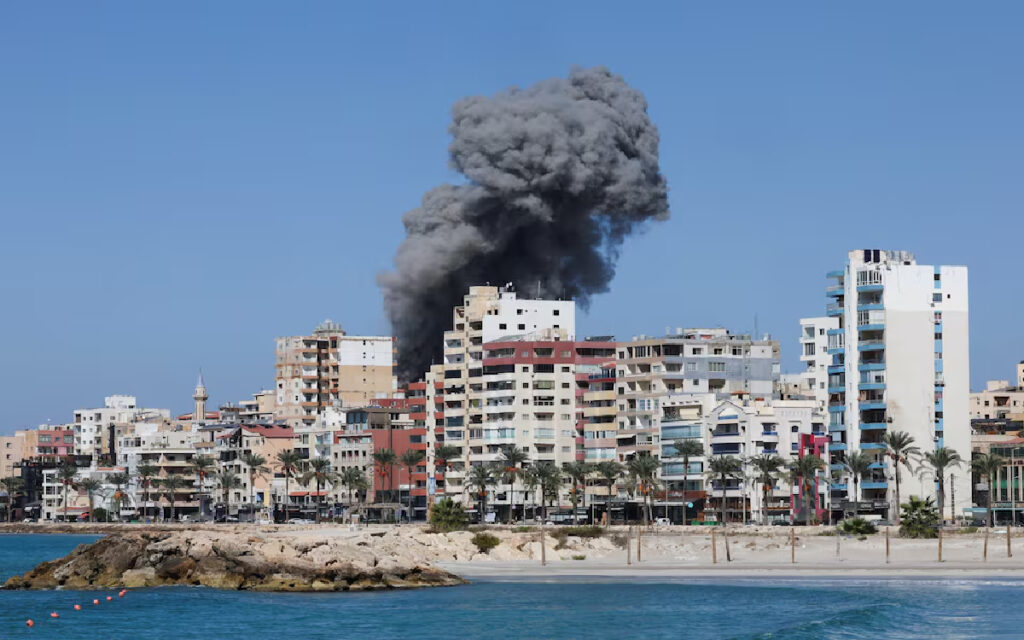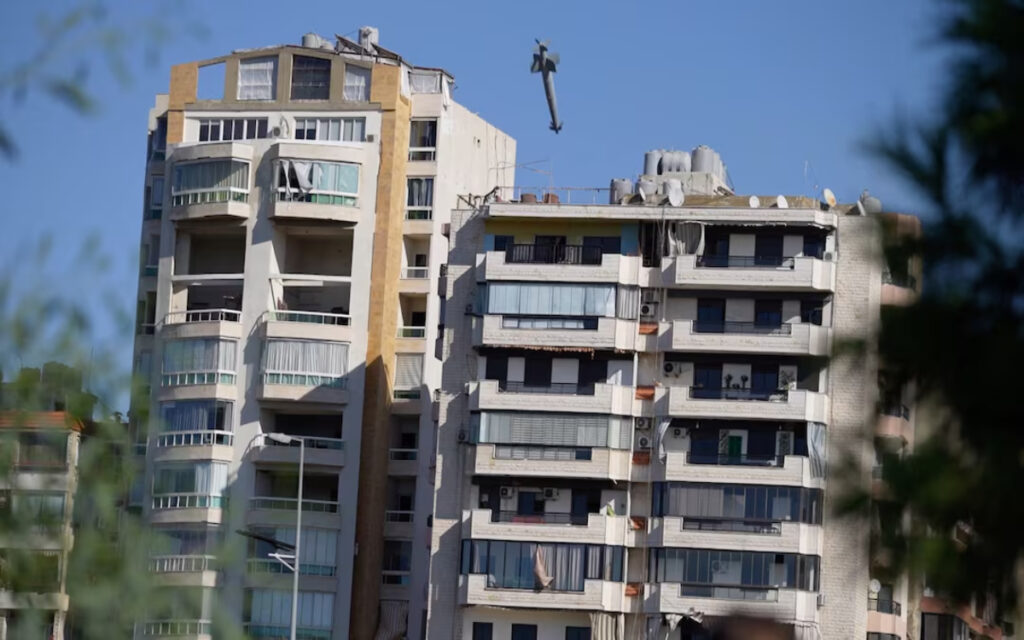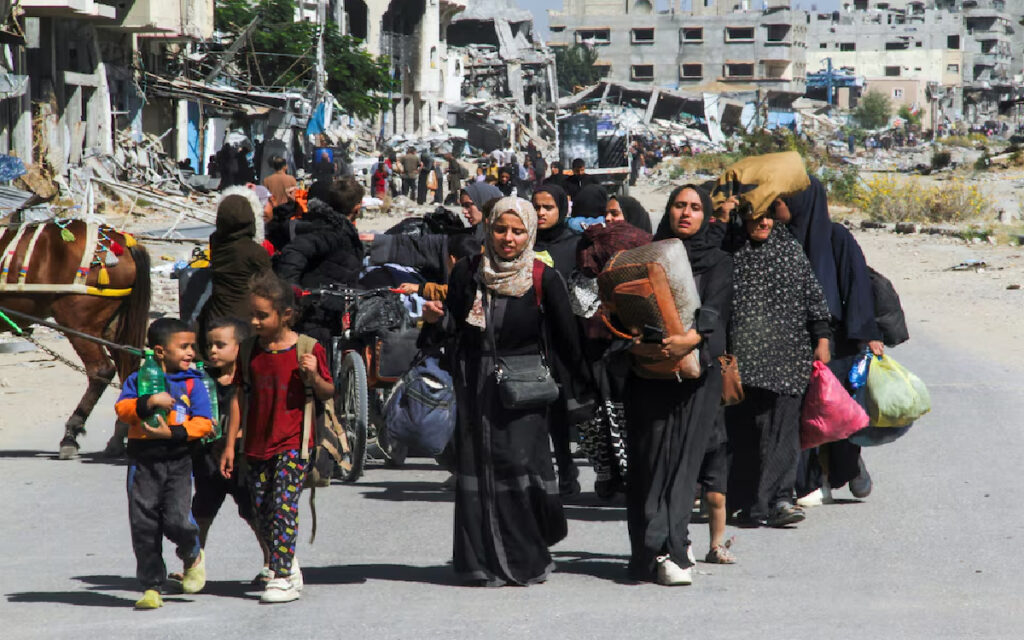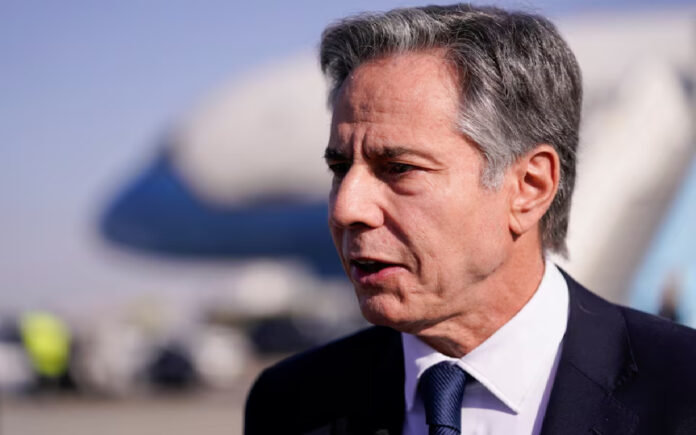Tel Aviv: U.S. Secretary of State Antony Blinken on Wednesday called for a halt to the ongoing fighting in Gaza and urged a diplomatic solution to the conflict in Lebanon. However, Israeli airstrikes on the historic port city of Tyre in southern Lebanon showed no sign of de-escalation.
Massive plumes of smoke were seen rising from residential areas in Tyre, a UNESCO-listed site, hours after Israel issued an online evacuation order for residents to leave central parts of the city. Israel’s military later confirmed strikes on Hezbollah command centers, including its southern front headquarters.
Tens of thousands of people have already fled Tyre as Israel intensifies its efforts to target Hezbollah in Lebanon and Hamas in Gaza, both backed by Iran, Israel’s long-time regional rival.

“We are better off dying with dignity than living on the street,” said Batoum Zalghout, 25, who fled from Tyre’s latest evacuation zone with her two children. She shared that this was her fifth time being displaced by the conflict.
The strikes lasted for about an hour, with Israeli military officials stating that they aimed at Hezbollah facilities. Tyre’s mayor, Hassan Dabouq, confirmed that historic landmarks remained intact despite the bombardment.

Meanwhile, in northern Israel, air raid sirens blared as rockets fired from Lebanon crossed the border, triggering a response from Israeli air defenses. In Haifa, a civilian was seriously injured during the rocket exchange. Smoke trails were seen in the sky following the interception of Hezbollah rockets.
In Gaza, where Israeli forces have escalated their offensive following the death of Hamas leader Yahya Sinwar last week, at least 20 people were reported killed in fresh strikes. Among the victims were two brothers, Mohammed and Bilal Abu Atwi, one of whom worked for the U.N. aid agency UNRWA. Their vehicle, marked with U.N. insignia, was struck in Deir al-Balah. “Our children have become martyrs as they were serving their community and people,” said their father, Marwan, at the hospital where their bodies were wrapped in white plastic bags.

The U.S. has urged Israel to do more to assist the civilians in Gaza. U.S. Defense Secretary Lloyd Austin warned that failing to address the humanitarian crisis could fuel further insurgencies. Blinken, on his first trip to the region since Sinwar’s death, emphasized that Israel’s military gains should lead to diplomatic progress and lasting peace.
While in Israel, Blinken met with Prime Minister Benjamin Netanyahu before traveling to Saudi Arabia to discuss the conflict with Crown Prince Mohammed bin Salman. Their conversations focused on ending the hostilities in both Gaza and Lebanon, according to the U.S. State Department.
In southern Lebanon, the Israeli military claimed to have killed three Hezbollah commanders and around 70 fighters in recent operations. Among those reported dead was Hashem Safieddine, considered the likely successor to Hezbollah leader Hassan Nasrallah, who died in an Israeli airstrike in late September.
Also Read | Gunfire and Explosions Rock Turkish Aerospace Industries, 4 Killed in Attack
Lebanon’s government reported that Israeli strikes have killed at least 28 people in the past 24 hours, bringing the total death toll since October to 2,574. Israel’s recent military actions have devastated Hezbollah’s leadership, marking a significant blow in the ongoing conflict between the two forces.
Blinken expressed optimism that the death of Hamas leader Yahya Sinwar could serve as an opportunity for peace. However, Israeli strikes have intensified in northern Gaza, where Hamas fighters are believed to have regrouped. Humanitarian conditions have worsened, with hospitals shutting down and basic services collapsing.
German Foreign Minister Annalena Baerbock, visiting Lebanon to seek a resolution, acknowledged the challenges of providing arms to Israel while balancing humanitarian concerns. “Israel is attacked every day, but we must also ensure international humanitarian law is upheld,” she said.
Blinken concluded by urging Israel to transform its military victories into “an enduring strategic success,” highlighting the need to secure peace, bring home hostages, and formulate a clear postwar plan.



